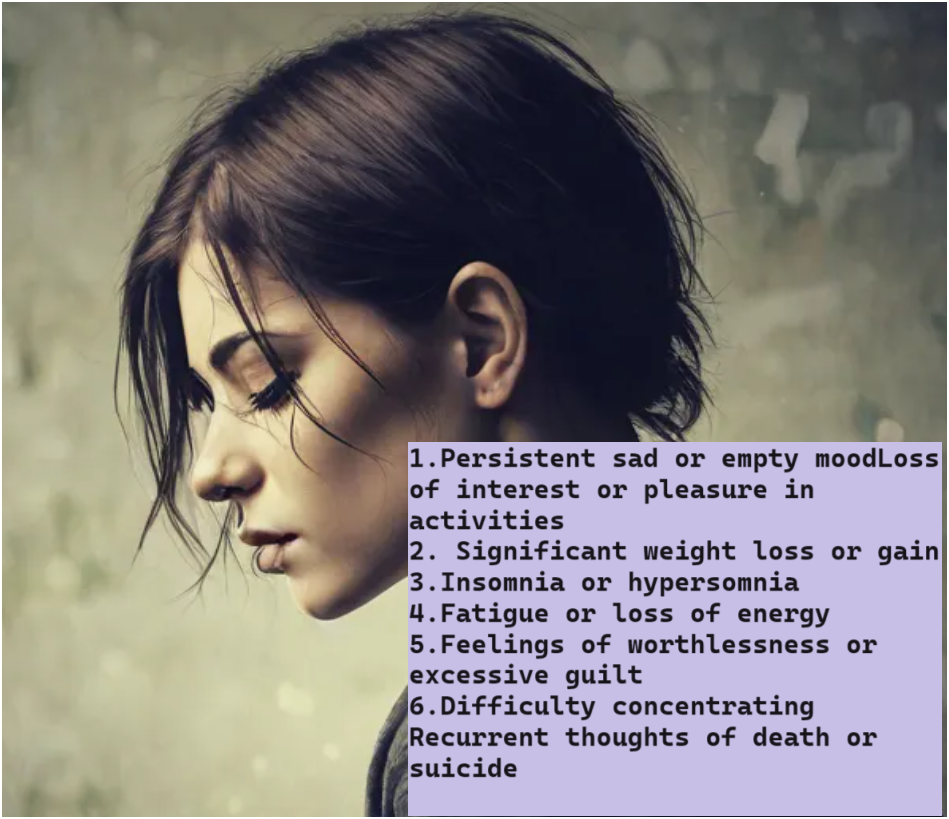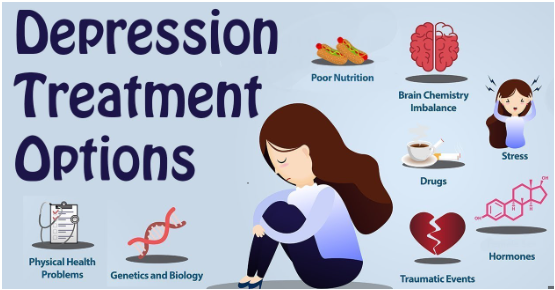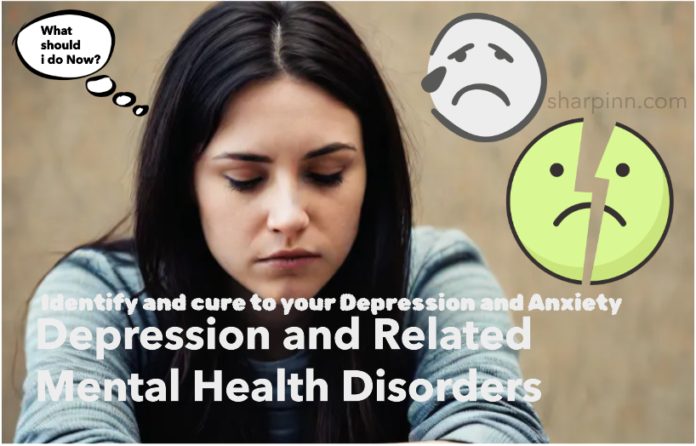Depression and related mental health disorders are complex and multifaceted conditions that affect millions worldwide. This article aims to provide a comprehensive understanding of various depressive and anxiety disorders, their diagnostic criteria, and treatment options. We’ll explore terms such as depression ICD-10, adjustment disorder with anxiety, PTSD ICD-10, and many others.
What is Major Depressive Disorder?
In mental health, Major Depressive Disorder (MDD), as defined by the DSM-5, is a severe form of depression characterized by persistent sadness, loss of interest in activities, and various psylogical and physical health problems. It significantly impairs an individual’s ability to function in daily life.

Also read: Understanding Depression and Anxiety: Causes, Symptoms, and Coping Strategies
Symptoms of MDD include:
- Persistent sad or empty mood
- Loss of interest or pleasure in activities
- Significant weight loss or gain
- Insomnia or hypersomnia
- Fatigue or loss of energy
- Feelings of worthlessness or excessive guilt
- Difficulty concentrating
- Recurrent thoughts of death or suicide
Depression ICD-10 Codes
In the ICD-10 classification, depression is coded under F32 for a single depressive episode and F33 for recurrent depressive disorder. The specific codes are as follows:
- F32.0: Mild depressive episode
- F32.1: Moderate depressive episode
- F32.2: Severe depressive episode without psychotic symptoms
- F32.3: Severe depressive episode with psychotic symptoms
- F33.0: Recurrent depressive disorder, current episode mild
- F33.1: Recurrent depressive disorder, current episode moderate
- F33.2: Recurrent depressive disorder, current episode severe without psychotic symptoms
- F33.3: Recurrent depressive disorder, current episode severe with psychotic symptoms
Generalized Anxiety Disorder DSM-5
Generalized Anxiety Disorder (GAD) is marked by excessive, uncontrollable worry about various aspects of life, lasting for at least six months. According to the DSM-5, symptoms include:
- Restlessness or feeling keyed up
- Easily fatigued
- Difficulty concentrating
- Irritability
- Muscle tension
- Sleep disturbances
Adjustment Disorder with Anxiety
Adjustment Disorder with Anxiety is characterized by excessive anxiety and worry in response to a specific stressor. The ICD-10 code for this disorder is F43.22. When accompanied by a depressed mood, it can be coded as F43.23 (Adjustment disorder with mixed anxiety and depressed mood).

PTSD ICD-10
Post-Traumatic Stress Disorder (PTSD) is a severe psychological disorder that develops after exposure to a traumatic event. The ICD-10 code for PTSD is F43.1. Symptoms include:
- Re-experiencing the traumatic event
- Avoidance of stimuli associated with the trauma
- Negative changes in thoughts and mood
- Hyperarousal and reactivity
Depressive Disorder | Mental Health
A Depressive Disorder is a broad term that encompasses various forms of depression, including major depressive disorder and unspecified depressive disorder. In ICD-10, unknown depressive disorder is F32.9 as a code.
Beck’s Depression Inventory
Beck’s Depression Inventory (BDI) is a widely used self-report measure for assessing the severity of depression. It consists of 21 questions, each scored on a scale from 0 to 3, providing a total score that indicates the level of depression.
Depression’s Treatment Options: Medications and Therapy
Various treatment options are available for depression and related disorders. Medications, such as Abilify (aripiprazole), are often prescribed for depression, especially when other treatments have not been effective. Commonly prescribed depression meds include:

- SSRIs (e.g., fluoxetine, sertraline)
- SNRIs (e.g., venlafaxine, duloxetine)
- Tricyclic antidepressants (e.g., amitriptyline, nortriptyline)
- Atypical antipsychotics (e.g., aripiprazole, quetiapine)
Psychotherapy is another crucial aspect of treatment. Cognitive-behavioral therapy (CBT), interpersonal therapy (IPT), and other therapeutic approaches can be highly effective in managing symptoms.
Role of Psychiatric Mental Health Nurse Practitioners
Psychiatric Mental Health Nurse Practitioners (PMHNPs) play a vital role in the assessment, diagnosis, and treatment of mental health disorders. They could provide a range of services, including medication management and psychotherapy.
Understanding depression and related mental health disorders, their diagnostic criteria, and treatment options is crucial for effective management. Whether dealing with major depressive disorder, generalized anxiety disorder, or adjustment disorders, seeking professional help and following a comprehensive treatment plan can lead to significant improvements in mental health.
Any person dealing with such conditions should always bear in mind that help is available and recovery is possible. Take the advice to “put a stick in it” when all else fails, which means to act and look for the help needed to get better mentally.

